How the US Stacks Up in Healthcare Across the World
Posted by Pankaj Dhiman on Mar 20th 2024
In the global landscape of healthcare systems, the United States often finds itself under scrutiny and comparison. The discussion around the efficacy, accessibility, and affordability of healthcare in the US is a complex one, with opinions varying widely. From debates on insurance coverage to the quality of care, understanding how the US stacks up against other countries is essential for grasping the full picture. So, how does the US fare in healthcare compared to the rest of the world? Let's delve into this topic to unravel the nuances and realities.
What Sets the US Healthcare System Apart?
The US healthcare system is unique in several ways, primarily due to its reliance on a predominantly private, market-driven approach. Unlike many other developed nations that have universal healthcare systems or a mix of public and private provisions, the US primarily operates on a private insurance model. This means individuals often obtain health insurance through their employers or purchase it independently, with government programs like Medicare and Medicaid catering to specific demographics.
Must Read: Top 5 Best Selling Hypoallergenic Tapes in the US 2024
Strengths of the US Healthcare System
Despite its criticisms, the US healthcare system boasts several strengths. One of the key aspects often highlighted is the country's medical innovation and technological advancements. The US leads the world in medical research, pharmaceutical development, and cutting-edge treatments. This innovation contributes to better health outcomes for many patients, particularly those with complex medical conditions.
Additionally, the US is renowned for its top-tier medical facilities and specialists. From prestigious hospitals to renowned medical schools, the country attracts some of the brightest minds in healthcare. Patients from around the globe often seek treatment in the US for specialized care and advanced procedures not available in their home countries.
Must Read: Top 5 Cardinal Health Foley Catheters for 2024
Challenges and Criticisms
Despite its strengths, the US healthcare system faces significant challenges and criticisms. One of the most glaring issues is the lack of universal coverage. Unlike countries with universal healthcare, millions of Americans remain uninsured or underinsured, leading to disparities in access to care. This issue disproportionately affects low-income individuals and marginalized communities, exacerbating existing health inequities.
The high cost of healthcare in the US is another major concern. Medical expenses, including insurance premiums, deductibles, and out-of-pocket costs, continue to rise, placing a financial burden on individuals and families. The rising cost of prescription drugs is particularly alarming, with many Americans struggling to afford life-saving medications.
Furthermore, the fragmented nature of the US healthcare system contributes to inefficiencies and administrative complexities. The multitude of insurance providers, healthcare networks, and billing practices often leads to confusion and frustration for patients and providers alike. Administrative costs in the US far exceed those of other developed nations with universal healthcare systems, diverting resources away from patient care.
Must Read: 10 Best Medical First Aid Kits in US (2024)
Global Perspectives on Healthcare
To truly understand how the US stacks up in healthcare, it's essential to compare it to other countries around the world. While the US leads in certain areas like medical innovation and specialized care, it lags behind in key metrics such as life expectancy, infant mortality rates, and healthcare affordability.
Countries with universal healthcare systems, such as Canada, the United Kingdom, and Australia, often achieve better overall health outcomes at a lower cost. These systems prioritize preventive care, primary care, and social determinants of health, resulting in healthier populations and reduced healthcare spending per capita.
Must Read: Balanced Diet: Definition, Importance, Benefits & Diet Chart
Moving Forward: Opportunities for Improvement
Despite its challenges, the US healthcare system has the potential for improvement. Policymakers, healthcare providers, and stakeholders must come together to address the systemic issues plaguing the system. Implementing reforms aimed at expanding access to affordable coverage, controlling healthcare costs, and improving care coordination can lead to positive change.
Investing in preventive care, public health initiatives, and addressing social determinants of health are also critical steps in improving health outcomes and reducing disparities. By prioritizing wellness and addressing the root causes of illness, the US can create a more equitable and sustainable healthcare system for all its citizens.
Must Read: 10 Nursing Trends to Watch in the US in 2024
Conclusion
The US healthcare system is a complex and multifaceted entity, shaped by a variety of factors including politics, economics, and social dynamics. While it excels in areas like medical innovation and specialized care, it faces significant challenges such as lack of universal coverage and high costs. By learning from global perspectives and embracing reforms, the US can work towards a healthcare system that prioritizes accessibility, affordability, and quality of care for all its residents. It's time to move beyond debates and take concrete actions to ensure a healthier future for generations to come.





























































